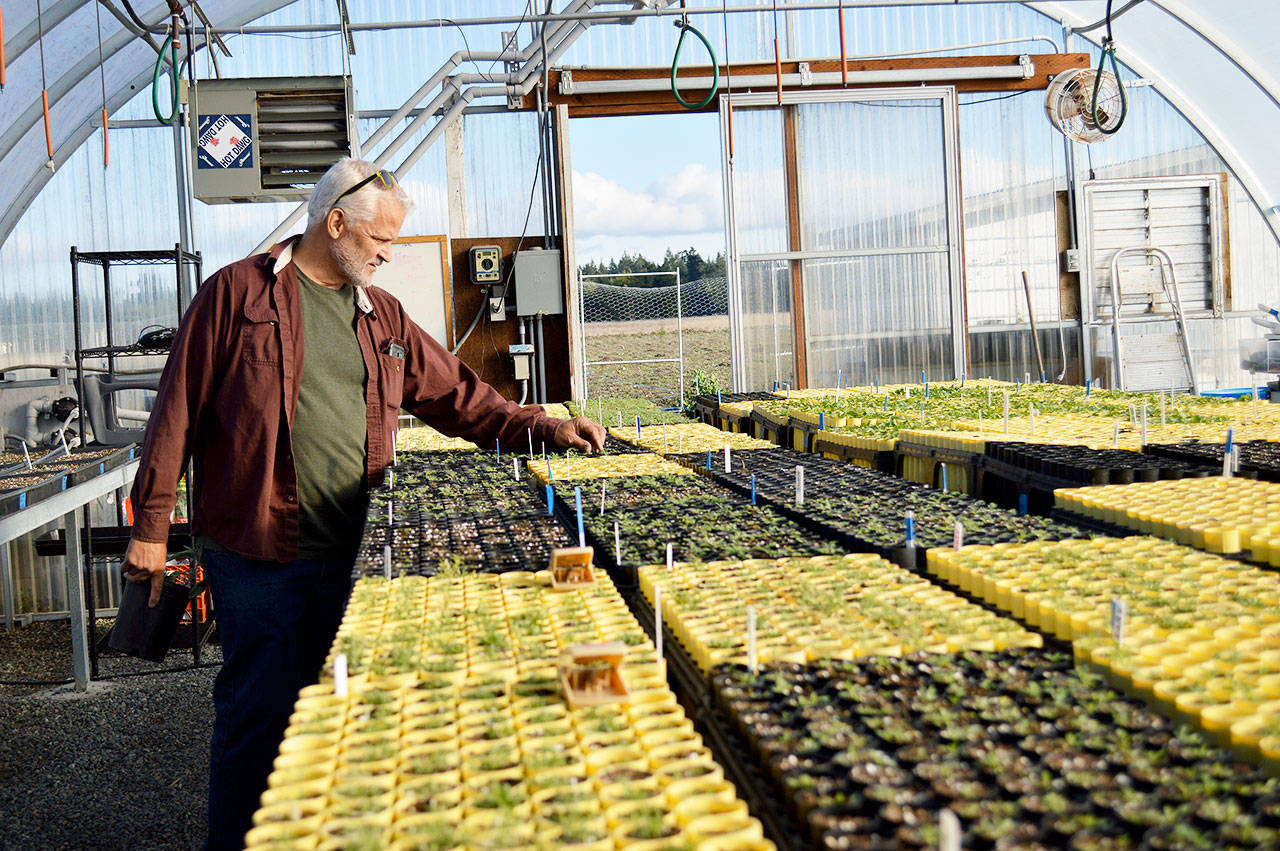Having family members visit for the holidays is usually a positive experience, but if they’ve been cooped up in the house for too many days in a row, the Pacific Rim Institute has a possible solution.
PRI will be hosting “relative day care” to give family a chance to get away for a couple of hours to tour its facilities.
“The secret will be between us,” said CEO Robert Pelant. “We won’t tell them they were sent to day care.”
The nonprofit institute sits on a 175-acre property and focuses on restoring habitat and performing and sharing sustainable practices.
The property includes a piece called “the remnant,” which is an old-growth prairie. Prairie land is increasingly rare in Washington state, and PRI is working to support the growth of native species. Pelant said the land has changed significantly since the island was settled in the 1850s.
The introduction of invasive plants as well as the avoidance of fire, which is critical to prairie health, caused the land to degrade, he said.
“It’s got to be an active battle,” said Pelant of restoration.
The institute conducts controlled burns of the area to clear invasive plants and make way for the native species that they later plant.
On a larger scale, PRI partners with the National Park Service as part of a regional native seed bank network. Its plant collection includes over 20 native species as part of restoration efforts within the Puget Sound area.
The organization has a variety of partnerships with universities and government agencies for research and restoration.
This includes a cooperative agreement with the Washington State University’s Island County Extension to house the university’s honeybees and to conduct workshops throughout the year. It also partners with University of Washington for an ongoing monitoring of restoration efforts and the University of Oregon as part of a climate change study and its effects on native plants.
Additionally, PRI works with agencies such as the U.S. Fish and Wildlife Service, U.S. Department of Agriculture, the Navy and the Bureau of Land Management for a variety of projects around the island and even some off-island ventures. Local landowners can work with the organization to re-introduce native species or re-vegetate a slope that has degraded.
PRI also uses its site to host a number of events throughout the year, including this year’s first-ever Whidbey Island Cider Festival. The facilities on the old pheasant farm can be rented out by groups for meetings, workshops, retreats and more.
“We have a number of buildings here that been adaptively remodeled, but they maintain the shape of the old buildings that were here with the pheasant farm,” said Pelant.
Facility rentals, fundraising, grants, donations and sales of products such as honey and native plants are how the institute funds its operations. There are three full-time employees with several part time and volunteers. The institute also offers restoration and outreach internships.
“There’s a lot of practical skills that can be learned here just on land management, or growing plants or just on taking care of the environment around you,” he said.
Pelant said he is always welcome to people stopping by and asking questions about the organization and its restoration efforts. In mid-December there will be a holiday open house in which the public can come in and talk over eggnog. During January and February the organization will hold a series of workshops on tree production, covering grafting, pruning, care and selection.
“There’s so many layers to PRI, don’t be shy about calling or stopping in or booking a tour,” Pelant said. “We love that; we love to engage the community.”




